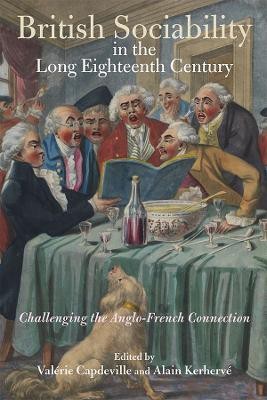British Sociability in the Long Eighteenth Century(English, Paperback, unknown)
Quick Overview
Product Price Comparison
This innovative collection explores how a distinctively British model of sociability developed in the period from the Restoration of Charles II to the early nineteenth century through a complex process of appropriation, emulation and resistance to what was happening in France and other parts of Europe.The study of sociability in the long eighteenth century has long been dominated by the example of France. In this innovative collection, we see how a distinctively British model of sociability developed in the period from the Restoration of Charles II to the early nineteenth century through a complex process of appropriation, emulation and resistance to what was happening in France and other parts of Europe. The contributors use a wide range of sources - from city plans to letter-writing manuals, from the writings of Edmund Burke to poems and essays about the social practices of the tea table, and a variety of methodological approaches to explore philosophical, political and social aspects of the emergence of British sociability in this period. They create a rounded picture of sociability as it happened in public, private and domestic settings - in Masonic lodges and radical clubs, in painting academies and private houses - and compare specific examples and settings with equivalents in France, bringing out for instance the distinctively homo-social and predominantly masculine form of British sociability, the role of sociabilitywithin a wider national identity still finding its way after the upheaval of civil war and revolution in the seventeenth century, and the almost unique capacity of the British model of sociability to benefit from its own apparent tensions and contradictions.


